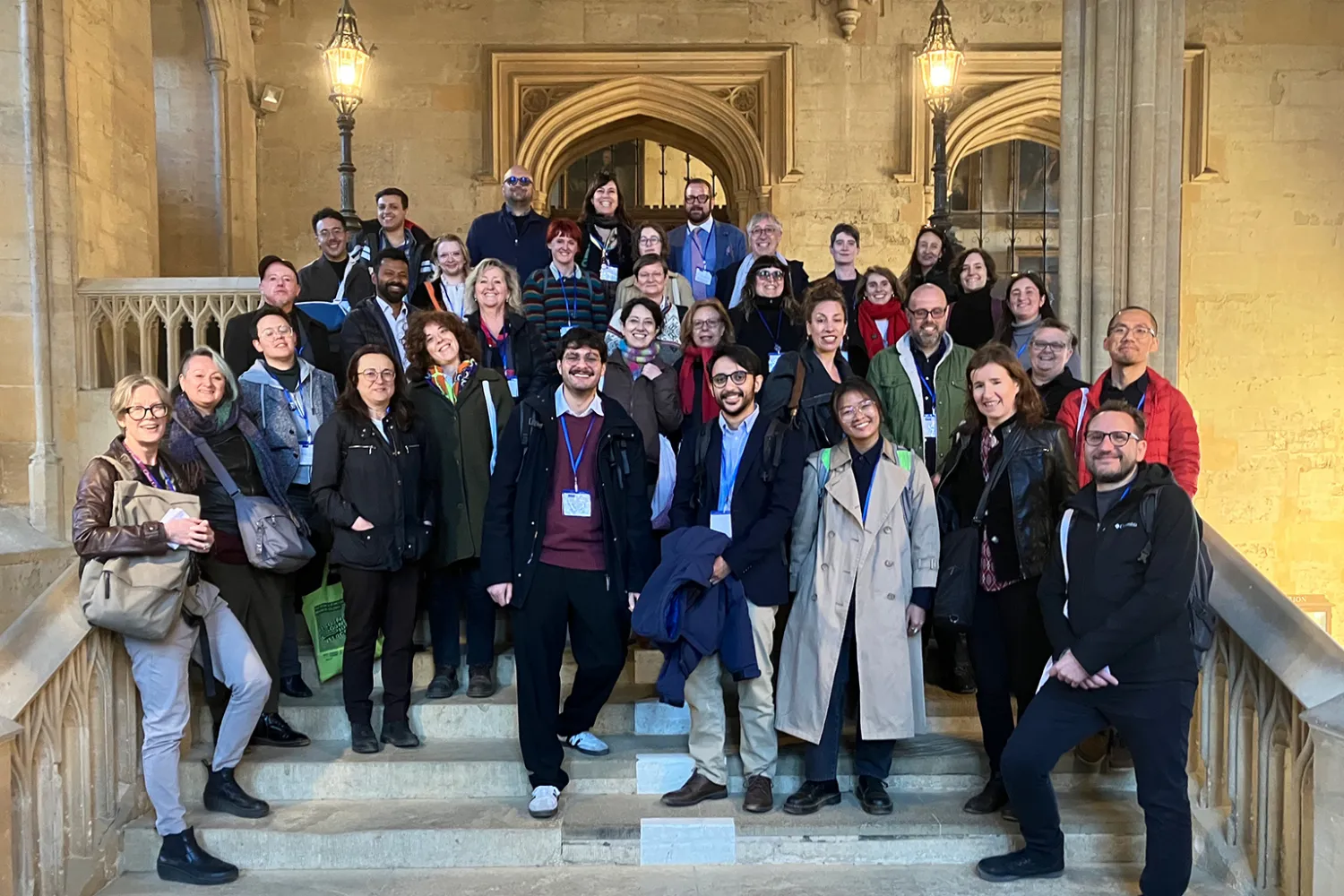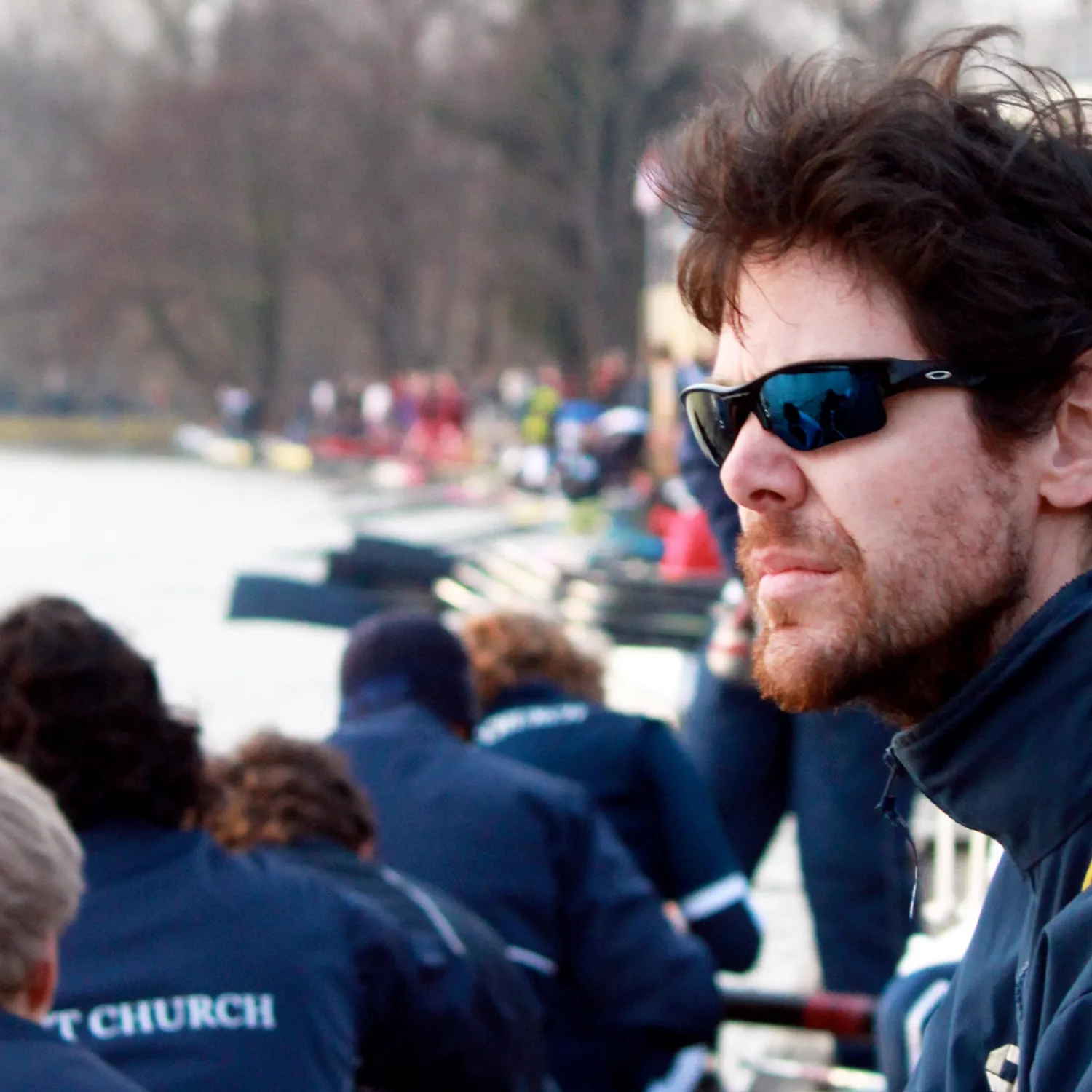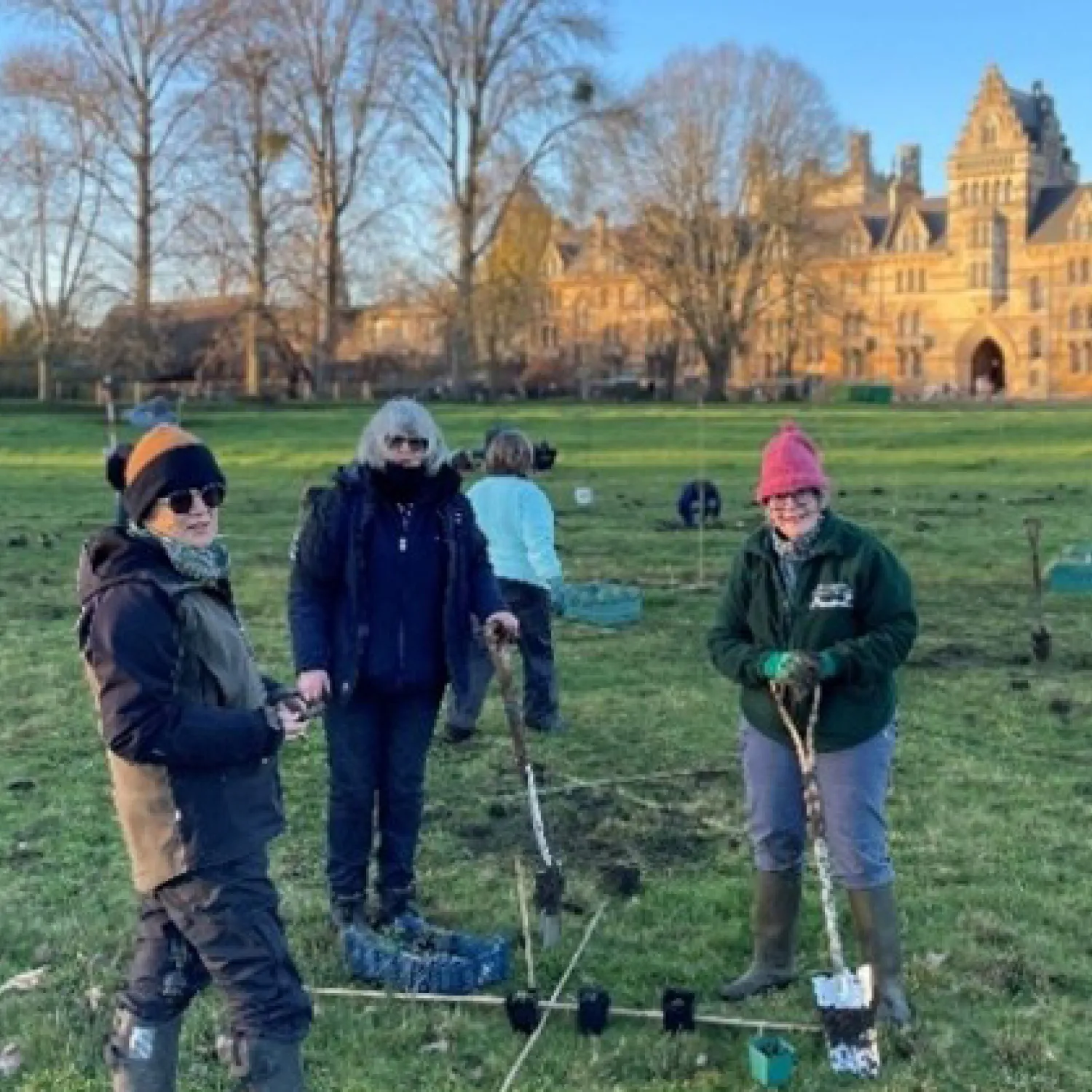Breadcrumb
Queer Kinship across Time and Space: an interdisciplinary conference
From 8 to 10 April, Christ Church hosted a conference bringing together members of the Queer Kinship Network. The international research group is led by Christ Church Tutor in Modern Languages Professor Charlotte Ross, together with Professor Silvia Antosa of Università per Stranieri di Siena and Professor Paolo Frascà of the University of Toronto. We caught up with Professor Ross to learn more.
The Queer Kinship Network’s current research project explores the histories and new transformative shifts of queer affective bonds and familial dynamics that go beyond or creatively redefine heteronormative models. We examine past and present social developments, the impact of political debates and legal frameworks, and cultural representation. By fostering critical debate and interdisciplinary exchange, the project seeks to develop a deeper awareness of diverse configurations of queer bonds and families within a plural, multicultural, and inclusive framework.
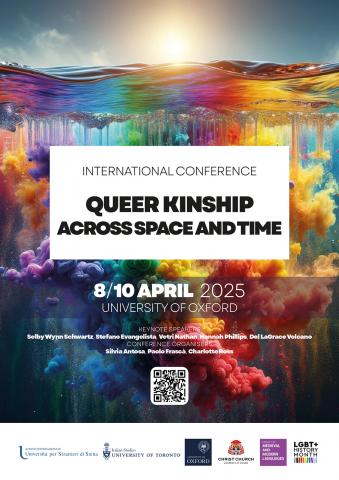
This conference, one of a series of events, was generously sponsored by Christ Church and the Faculty of Modern and Medieval Languages. It included over 40 presentations by scholars, artists and activists from across Europe, Asia and North America. Conversations ranged across literary, cultural and historical approaches, as well as sociological, legal, linguistic and wider interdisciplinary perspectives, such as ecocultural and multispecies research. Panel discussions focused on a range of topics, such as ‘Italy’s Queer Souths’, ‘Theoretical and Legal Perspectives’, ‘Community, Care and Lineage’, ‘Literature and Memoir’, ‘Cinema and Media’ and ‘Spirituality, Theosophy and Ontology’.
Queering kinship is a process of creative innovation, forging alternative connections and communities to the restrictive heteronormative model.
Queering kinship is a process of creative innovation, forging alternative connections and communities to the restrictive heteronormative model.
Keynote speakers included Professor Stefano Evangelista (Oxford), who explored the work of Japanese author Mishima Yukio as an example of queer world literature, and Professor Vetri Nathan (UCLA), who shared his work on multispecies kinship, care, wellbeing and epistemic humility.
The project brings together researchers to share their work and to develop theoretical and methodological frameworks, but also makes space to reflect on how they can engage with wider communities. Another keynote speaker at the conference, Dr Hannah Phillips, is a theatre maker whose ‘practice as research’ queer theatre-making involves communities in a co-created, polyphonic dialogue.
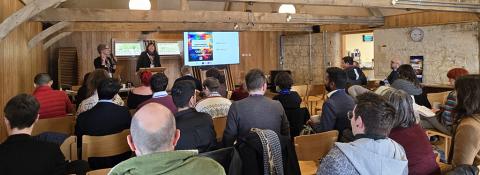
There were also two free, public events. The Booker Prize-nominated author Selby Wynn Schwartz gave a talk on ‘The Queer Glow of the Book Lantern’, exploring how the legacy of Virginia Woolf’s lantern bearer can help us make connections between forms of queer collective reading and memorialisation. Photographer and author Del LaGrace Volcano shared some of their ground-breaking work documenting queer lives and experiences over the past 50 years, their ‘Archive of Resistance’ to the constraints of gender binaries and heteronormativity.
These talks were followed by lively Q&A sessions. One of our key objectives is to involve local communities in our activities, to invite input into our research design, and to encourage debate and engagement beyond the academic community, enriching our activities. The conference will lead to academic publications as well as further events, such as our online seminars and contributions to our evolving blog.
Professor Ross is a Tutorial Fellow in Italian at Christ Church. In her work, she takes an interdisciplinary approach to the analysis of cultural discourses of gender, sexuality and embodiment. Learn more about her research via her Christ Church profile.
Other Christ Church news
